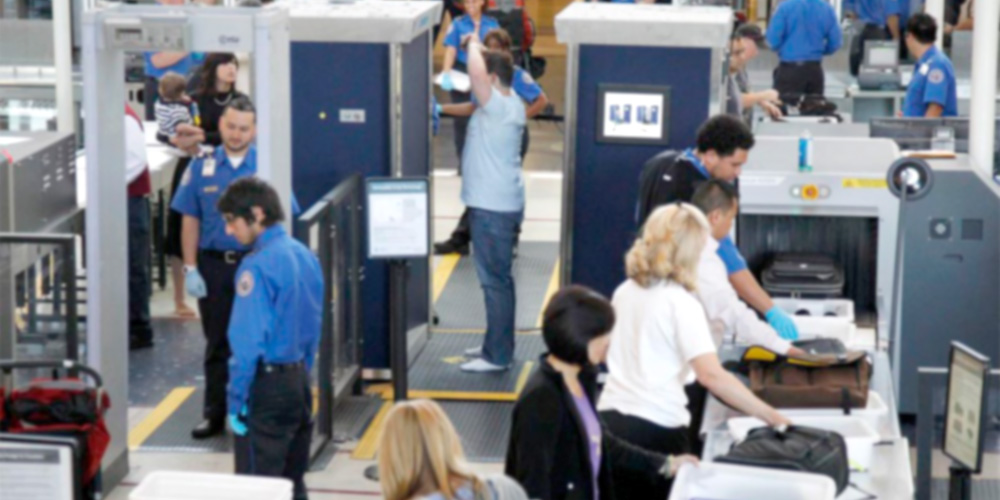 |
In the middle of airport security, I suddenly felt insecure. I couldn’t find it. It was just in my hand a moment ago—and now it was gone. I couldn’t go forward, and I couldn’t go backward. A line was forming.
A security agent approached, “Sir, is there a problem?”
“Yes, my passport. It’s gone!”
Somehow between one checkpoint and the other side of the baggage scanner, it had disappeared. Where to begin looking? So many people. How to begin looking? One doesn’t retrace steps in airport security.
Without my passport, my sense of security disappeared. International travel means having a passport in hand. How could the trip continue? That passport shows who I am. That passport shows my citizenship. Now what?
No amount of pocket checking helped. Security agents conferred and sent messages.
Minutes later, another security agent approached . . . and she was holding a passport! The mystery was solved. “You must have dropped it. [Cue wife’s eye roll.] Someone picked it up and turned it in. You are good to go.”
“You are good to go!” Sweet, sweet words! Passport in hand, I’m not letting it go!
Citizenship. It matters. Whether traveling or not, whether living in another country or “at home”—citizenship matters. Always.
Paul knew the value of citizenship. When Paul and Silas traveled to Philippi, they faced security and insecurity on many levels. Because of a miracle, Paul and Silas were arrested, beaten, flogged, and placed in stocks in prison (Acts chapter 16). What did it matter to the officials? These men were foreigners, outsiders. After a day of abuse, they were to be quietly released.
It was at this point that Paul held up his citizenship—his Roman citizenship. Quietly leave the city? No, he demanded to be escorted—by the very magistrates who caused their pain. One can understand Paul’s desire. He was not so concerned with his own honor but that the gospel message be honored. There is a greater kingdom.
Philippi was a city made up of many former Roman soldiers—people who had acquired citizenship and knew the value of it. One can easily imagine how the believers retold the story of Paul’s “citizenship moment.”
Much later Paul sent the Philippians a letter. He penned inspired words—about citizenship. Of course! He wants the Christians in Philippi—and us—to focus on the greater kingdom. We live here and are thankful for here—wherever “here” is. We appreciate and value the rights that come with citizenship. But we also understand that there is no perfect here, just as there is no perfect me.
Look beyond. “Our citizenship is in heaven. And we eagerly await a Savior from there, the Lord Jesus Christ” (Philippians 3:20). We have a citizenship that doesn’t come naturally and can’t be earned. It is freely given.
The example for the Philippians was the jailer right there in Philippi. After an earthquake, he pleaded, “Sirs, what must I do to be saved?” The answer still rings in our ears, “Believe in the Lord Jesus Christ, and you will be saved—you and your household.” On that night, the jailer and his family were baptized and given new citizenship.
Through faith, this is our citizenship too—no matter what passport we hold in our hand. Our heavenly citizenship changes the way we think and live here.
As you begin each new day, wherever God has placed you, know this: “You are good to go!”
Author: Mark W. Henrich
Volume 109, Number 08
Issue: August 2022
- Changing hearts
- Mission dreams
- A new open door
- Your greatest joy
- Quick to listen
- Rest on the Rock
- I will do what I can
- Water the seed: Ministry in the public school
- Out from the shadows
- Jesus’ hands are never tied
- My church family
- With you always
- Build others up
- On mission statements and missions
- You are good to go
- Sound the alarm
- Pray, Christian, pray
- Now thank we all our God!
- A daily walk with our Shepherd
- Mind your own business
- A hymn for all ages
- Sunshine and rain
- Perspective
- Sunk without a trace
- All I want for Christmas
- Accept the challenge
- Get busy living
- The Lord, our shield
- Our desperate need
- Not just the capital of Rhode Island
- On grief and grieving: A Christian perspective
- Embracing a double standard
- Judgement-free zone
- Frogs in heated recliners
- An easy question?
- Drowning in a sea of bad news






